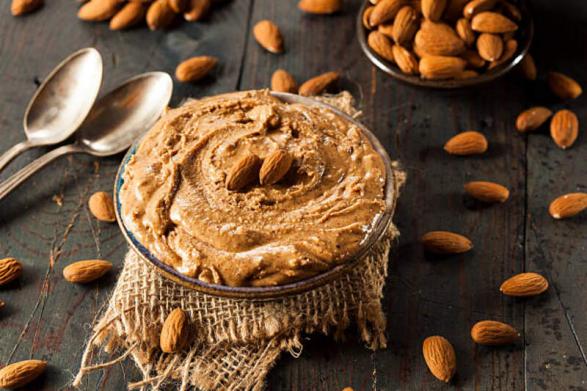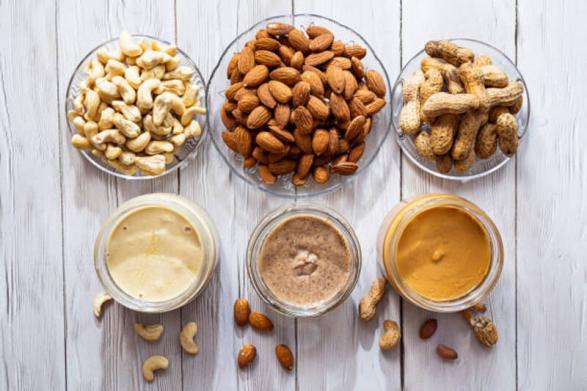In the world of health-conscious eaters, a common dilemma is choosing between almond butter and peanut butter. These nutrient-dense spreads are favorites on breakfast toasts, smoothies, and even in savory dishes. However, the question remains: which one brings more benefits to the table - almond butter or peanut butter? This comparison isn't just about taste; it's about evaluating their nutritional profiles. Both have their strengths and weaknesses, and understanding these can help you make informed choices that align with your dietary needs. In the forthcoming sections, we will dissect the health benefits of both almond butter and peanut butter, providing you with a comprehensive guide to help you make the right pick.
Nutritional Composition of Almond Butter and Peanut Butter
To understand the differences between almond butter and peanut butter, it's essential to look at their nutritional content. Both almond butter and peanut butter are energy-dense foods, containing good amounts of healthy fat, protein, vitamins, minerals, fiber, and antioxidants.
Almond Butter

Almond butter is made by grinding almonds into a smooth paste. Almonds are one of the most nutrient-dense nuts, providing a healthy dose of unsaturated fats, protein, fiber, magnesium, and vitamin E. Two tablespoons (32 grams) of almond butter contain approximately 200 calories, 7 grams of protein, 18 grams of fat (mostly monounsaturated), and 3 grams of fiber.
Peanut Butter
Peanut butter is made by grinding roasted peanuts into a smooth paste. Similarly, peanuts are an excellent source of monounsaturated fats, protein, and fiber. Two tablespoons (32 grams) of peanut butter contain approximately 190 calories, 7 grams of protein, 16 grams of fat (mostly monounsaturated), and 3 grams of fiber.
Health Benefits of Almond Butter
Almond butter is a rich source of nutrients and offers many potential health benefits. These include:
- Good for Heart Health: Almond butter, like most nut butters, contains monounsaturated and polyunsaturated fats that help lower bad cholesterol levels and improve heart health.
- Supports Weight Management: Despite being high in calories, almond butter can aid in weight management as it's a good source of dietary fiber and protein that help keep you full for longer.
- Regulates Blood Sugar: Almond butter has a low glycemic index, meaning it doesn't spike blood sugar levels. It also contains magnesium, which plays an essential role in carbohydrate metabolism.
- Boosts Immune System: Almonds are rich in vitamin E, an antioxidant that helps strengthen the immune system and protect against cell damage.
- Good for Bones: Almond butter is a good source of calcium and phosphorus, both of which are vital minerals for maintaining healthy bones.
Health Benefits of Peanut Butter
Peanut butter also packs a nutritional punch and offers several potential health benefits. These include:
- Good for Heart Health: Peanut butter contains monounsaturated and polyunsaturated fats, which can help lower bad cholesterol levels and reduce the risk of heart disease.
- Aids Muscle Building: With a good amount of protein, peanut butter is an excellent choice for post-workout recovery. It also contains arginine, an amino acid that helps improve blood flow and promote muscle growth.
- Supports Brain Function: Peanuts are rich in vitamin E, niacin, and folate - all of which play a crucial role in brain function and development.
- Reduces Risk of Colon Cancer: Peanuts contain resveratrol, an antioxidant that has been linked to reducing the risk of colon cancer.
Dietary Considerations

When choosing between almond butter and peanut butter, it's essential to consider your dietary needs and preferences. Here are some things to keep in mind:
- Allergies: Peanuts are among the most common food allergens, so if you have a peanut allergy, almond butter is a safe option.
- Vegan or Vegetarian Diet: Both almond butter and peanut butter are suitable for vegan and vegetarian diets as they are plant-based sources of protein.
- Low-Carb or Keto Diet: Almond butter is a low-carb food and can be included in a keto diet, while peanut butter is higher in carbs.
- Organic Options: If you're looking for organic products, almond butter may be a better choice as peanuts are often heavily treated with pesticides.
Comparison of cost and ease of access
In terms of cost and accessibility, peanut butter has an edge over almond butter. Peanuts are widely available and cheaper compared to almonds, making peanut butter more affordable and accessible. However, if you're willing to spend a little more on your health, almond butter is a worthwhile investment.
Conclusion
Both almond butter and peanut butter have their unique nutritional compositions and health benefits. Ultimately, the right choice depends on your dietary needs, preferences, and budget. However, whichever one you choose, make sure to opt for the natural varieties without added sugars or oils for maximum health benefits. So next time you find yourself torn between almond butter and peanut butter, remember to consider all the factors and choose the one that aligns with your goals and values. So go ahead and enjoy your favorite nut butter guilt-free! Happy snacking!




